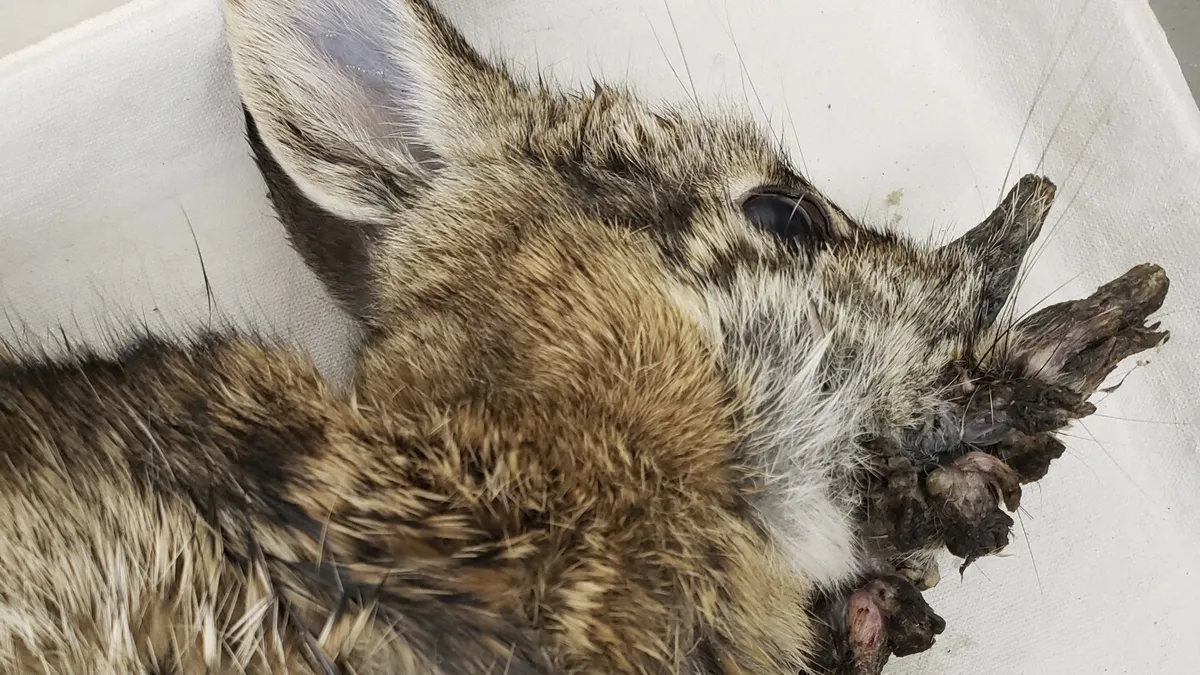
In a peculiar turn of events, a group of rabbits in Colorado has captured the attention of local residents and scientists alike. These rabbits, spotted in Fort Collins, are exhibiting grotesque, horn-like growths that may resemble something from a low-budget horror film. However, experts assure us that there is no cause for alarm; the furry creatures are simply infected with a common virus known as the Shope papillomavirus.
The Shope papillomavirus is primarily harmless and causes wart-like growths that protrude from the rabbits' faces, giving them an eerie appearance reminiscent of metastasizing horns. These viral photos have led to a flurry of amusing yet unflattering nicknames for the rabbits, including "Frankenstein bunnies," "demon rabbits," and "zombie rabbis."
Interestingly, the presence of this virus is not a new phenomenon. It has inspired ancient folklore and has been the subject of scientific research for nearly a century. The virus likely played a role in shaping the jackalope myth in North America, which describes a rabbit with antlers or horns, among other fantastical animal variations. Furthermore, the study of this disease in rabbits has significantly contributed to scientists' understanding of the link between viruses and cancer, including the human papillomavirus (HPV) responsible for cervical cancer.
The Shope papillomavirus was named after Dr. Richard E. Shope, a professor at The Rockefeller University, who first identified the disease in cottontails during the 1930s. Recent reports of these rabbits in Fort Collins, located 65 miles (105 kilometers) north of Denver, have gained traction as residents began posting pictures online.
Kara Van Hoose, a spokesperson for Colorado Parks and Wildlife, addressed the situation, confirming that the agency has received numerous calls from concerned citizens about the rabbit sightings. Van Hoose explained that it is not uncommon to encounter infected rabbits, particularly in the summer months when fleas and ticks, which transmit the virus, are most active.
The growths caused by the Shope papillomavirus can resemble warts but may appear horn-like if they grow excessively. Van Hoose reassured the public that these growths are usually harmless to rabbits unless they develop around the eyes or mouths, potentially interfering with their ability to eat. Fortunately, rabbits possess robust immune systems that can combat the virus, leading to the eventual disappearance of the growths.
In summary, while the sight of these unusual rabbits in Fort Collins may be startling, understanding the benign nature of the Shope papillomavirus can help alleviate concerns. These rabbits are a reminder of the fascinating interplay between wildlife and viral diseases, as well as the ongoing need for scientific discovery in the field of virology.